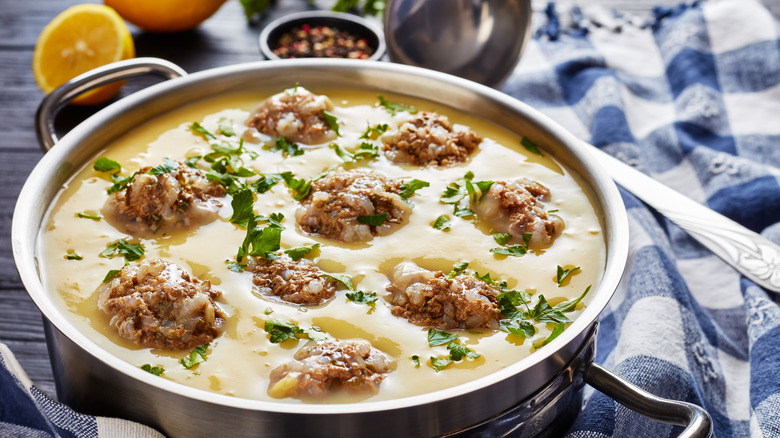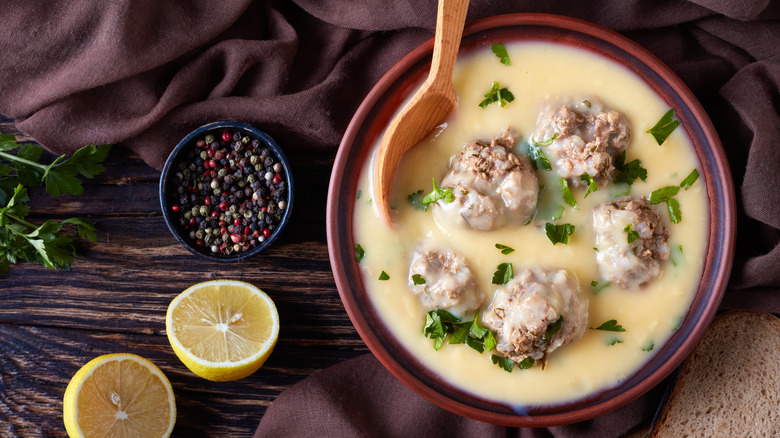The Arabic Meatball Soup That's Made For Holiday Celebrations
Of all the delicious comfort foods out there — from crispy fried chicken to creamy mac and cheese to decadent bread pudding — the one that feels most like a warm hug has got to be soup. Whether it's a bowl of spiced red lentil, creamy roasted tomato, or veggie-packed minestrone, soup is one of those foods that's common — and almost mundane — yet oh-so-satisfying.
Like other broad categories of food like salads and stews, there seem to be a million and one soup recipes, with some preparations being better suited to specific occasions. Chilled gazpacho, for example, goes down particularly well on a swelteringly hot day, while chicken noodle soup seems to cure what ails us if we fall ill. There are even types of soup that are typically prepared for certain holidays, such as fish chowder for the Feast of the Seven Fishes, an Italian Christmastime celebration (via Sumptuous Spoonfuls), and matzo ball soup on Passover (via The New York Times).
Another holiday-appropriate hearty soup? The Arabic meatball soup shurabet el Eid.
Meatballs and rice simmer in spiced chicken broth for this holiday soup
If you haven't explored the wide world of Middle Eastern soups, there's so much to discover, from the Lebanese lentil soup sorbet adas (via Foodaciously) to the Moroccan chickpea soup harira. And if you're looking for a festive option, you can check out shurabet el Eid, a comforting meatball soup whose name translates to "holiday soup." Typically served on Easter or Christmas, according to The Wall Street Journal, the traditional version of the soup includes baked lamb or beef meatballs, rice, kubbeh (also spelled kibbe), deep-fried ground meat, and bulgur croquettes.
For a simpler, weeknight version, a Serious Eats recipe omits the labor-intensive kubbeh, adding only the rice and small oven-baked meatballs, which are simmered in a cinnamon- and allspice-scented chicken broth. Served with a garnish of fresh parsley, the homey soup is also traditionally offered to postpartum women to help them regain strength after birth, or to those suffering from a head cold — so don't think you have to save the dish for Easter of Christmas if either of those situations applies to you.

